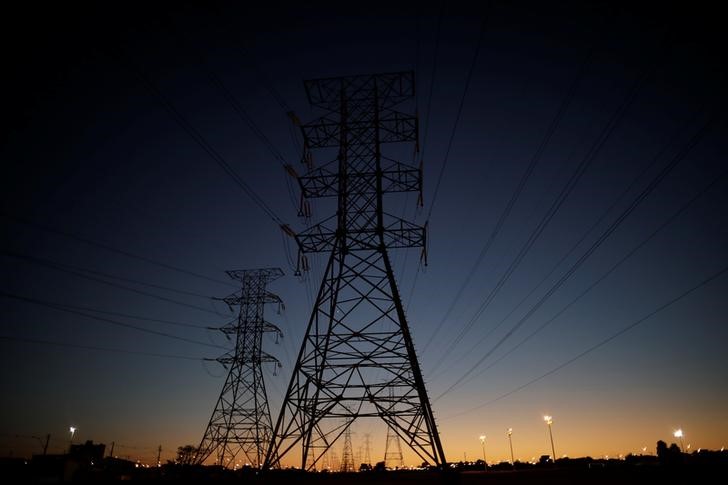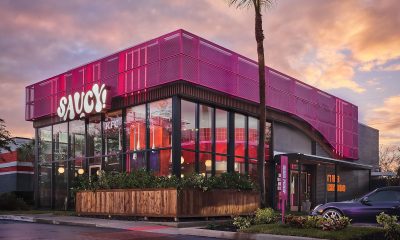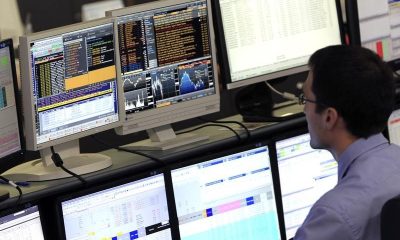Investing
Analysis-CATL’s ‘price war’ shows its power, and China’s EV edge

© Reuters.
SHANGHAI/LONDON (Reuters) – CATL, the world’s largest battery maker, has offered to cut costs for Chinese automakers, a move that demonstrates its market power and could also widen China’s cost advantage in electric vehicles.
China’s CATL has offered smaller domestic electric-vehicle makers discounted prices on batteries, according to four people with knowledge of the terms.
The discount offers included a clause that shocked the auto industry after a year of rising prices: a built-in assumption that prices of lithium carbonate, a key component in auto batteries, would more than halve, three of the people said. The move shows CATL’s cost advantage from its investments in lithium mining and refining, and its determination to knock back the challenge from smaller Chinese rivals such as CALB and EVE Energy which have factories ramping up this year, analysts said.
“It’s very much a market share game,” said Caspar Rawles, chief data officer at Benchmark Mineral Intelligence. “This is, I think, in part, a price war.”
The offer to automakers, including Nio (NYSE:) and Geely’s Zeekr unit, that was reported by Reuters earlier this month came with a catch: in exchange for the discount, the automakers would have to pledge most of their battery supply contracts to CATL, according to the three sources. In some cases that share would be as high as 80% of their business for CATL, they said. The EV makers are still negotiating the offers with CATL, the people, who asked not to be named because the matter is private, said.
Contemporary Amperex Technology Co Ltd – more widely known by its initials – is the dominant global supplier with a 37% share of the EV market. The company did not respond to a request for comment.
Nio did not respond to a request for comment. Zeekr declined to comment.
CATL has faced some pushback from Chinese automakers for its market dominance and pricing. It was not immediately clear how China’s regulators would view CATL’s offer of lower prices in exchange for a fixed share of future orders.
China’s government cost and price regulatory agency said on Thursday its officials had visited CATL earlier this month and said it would “strengthen cooperation” with the company, without providing further details.
CATL’s offer follows a downturn in lithium prices linked to a slowdown in EV sales in China, which accounted for two-thirds of all battery-powered cars sold in 2022.
For consumers, that could bring prices down after a year when manufacturers struggled with supply chains and rising prices for batteries, the largest single cost in an EV.
Tesla (NASDAQ:), the global EV leader, slashed prices by up to 20% in early January globally.
END OF SUBSIDIES
Battery prices had been falling for more than a decade before turning higher in 2022. That began to reverse late last year in China.
“There’s a price war going on. We’ve seen it some weeks ago at the vehicle level. We’re now seeing it at the battery level,” Eric Norris, president of Energy Storage at Albemarle (NYSE:) Corp, the world’s largest producer of lithium for EVs, told Reuters.
CATL, he said, was looking to try to take advantage of its integration “to cut prices to gain share”.
Spot prices for lithium carbonate in China have dropped by about 30% since their peak last year, as inventories were sold down on concern the end of national EV subsidies in China would slow growth. That happened, as predicted, in January.
For CATL, the discount is a way to head off a bid by Chinese EV makers to seek alternatives.
Li Auto has said it will use SVOLT batteries in its new L7 SUV. Xpeng (NYSE:) has developed a fast-charging battery with Sunwoda. The company said last year that CATL was no longer its largest battery supplier.
In a move that would lessen its reliance on CATL, Nio is planning to build a new battery plant with annual capacity to produce enough to power about 400,000 long-range EVs, Reuters reported on Friday.
SVOLT, among CATL’s smaller rivals, has also offered discounts on battery supplies, Chinese media have reported. SVOLT declined to comment and Reuters could not confirm those reports.
Electric vehicle demand in China has slowed, with the leading industry association predicting 35% growth in 2023, compared to 90% in 2022.
Outside China, CATL, which is building new battery plants in Germany and Hungary, is expanding rapidly and has deals to supply Ford Motor (NYSE:) Co and BMW. CATL batteries power Volkswagen (ETR:)’s I.D. series and Tesla’s Model 3 and Model Y built in China. Nearly 40% of those Teslas were shipped to overseas markets in 2022.
Battery cell prices for EV makers rose about 24% last year, said Prabhakar Patil, a battery industry consultant based in Detroit. The CATL offer would represent a total discount of about 6% from prevailing prices in China, if an automaker used it to lock in half of planned purchases, according to an estimate by Changjiang Securities.
“The reductions that CATL is offering would help the Chinese EV industry,” said James Frith, a principal at battery-tech focused venture capital group Volta Energy Technologies. “From the Chinese viewpoint, with China having the dominant electric vehicle market, they don’t want to lose that momentum.”
He added: “If some of those EVs with discounted batteries end up in Europe, it could cause trade tensions.”
Read the full article here

-

 Side Hustles6 days ago
Side Hustles6 days agoKickstart Your Year With These Entrepreneurial Health Checkups
-

 Side Hustles5 days ago
Side Hustles5 days agoExpand Your Global Reach with Access to More Than 150 Languages for Life
-

 Side Hustles4 days ago
Side Hustles4 days agoKFC Announces Saucy, a Chicken Tenders-Focused Spinoff
-

 Side Hustles5 days ago
Side Hustles5 days agoThis AI is the Key to Unlocking Explosive Sales Growth in 2025
-

 Investing4 days ago
Investing4 days agoPalantir, Anduril join forces with tech groups to bid for Pentagon contracts, FT reports By Reuters
-

 Side Hustles3 days ago
Side Hustles3 days ago4 Ways Content Can Make or Break the Customer Experience
-

 Passive Income6 days ago
Passive Income6 days agoHow to Motivate, Inspire and Energize Your Employees
-

 Make Money6 days ago
Make Money6 days agoBrace for Impact: 5 Potential Stock Market Crash Triggers in 2025


















